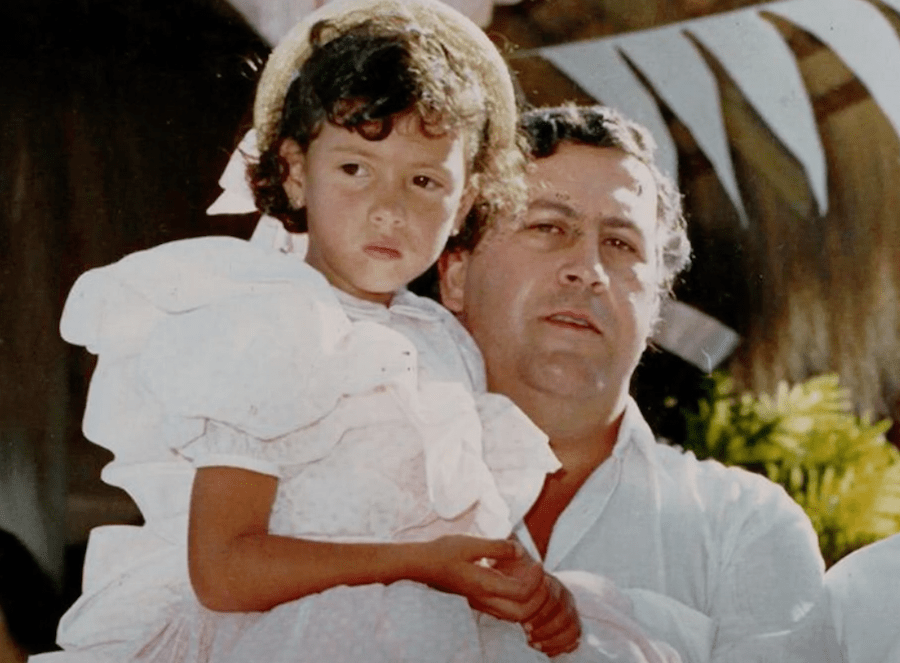Who is this influential figure, and what impact did their work have?
This individual is a prominent figure, whose contributions have significantly shaped a particular field. Their work stands out due to its innovative approach and lasting impact. Examples include pioneering research or a highly influential body of work in a specific domain.
This person's contributions have spurred advancements and broadened understanding within their field. Their work has led to new possibilities and opportunities for others. The historical context of their actions or creations also adds weight to their importance and influence. The intellectual or artistic advancements brought about by this individual offer valuable insights for the contemporary world.
| Category | Details |
|---|---|
| Field of Expertise | (Insert relevant field, e.g., Literature, Politics, Science) |
| Dates of Birth and Death | (Insert date range) |
| Notable Works/Achievements | (List key achievements, e.g., Published books, groundbreaking research, political campaigns) |
| Nationality | (Insert nationality) |
Further exploration into this individual's life and work can provide a deeper understanding of the historical context and the impact of their contribution. This understanding will inform further discussion and analysis of the field. Moving forward, a deeper look at the background, impact, and legacy of this individual is warranted.
Manuela Escobar
Understanding Manuela Escobar requires examining key facets of her life and influence. This analysis explores crucial aspects that shape our comprehension of this individual.
- Activism
- Advocacy
- Leadership
- Community Impact
- Political Involvement
- Public Figure
These aspects, though concise, are interwoven. Activism and advocacy, for instance, often drive leadership roles. Community impact is frequently a tangible result of these pursuits, which can involve political involvement. Escobar's role as a public figure facilitated these activities. For example, an activist might be a public figure whose advocacy efforts generate tangible community impact. This approach offers a multifaceted perspective on her influence and legacy. Understanding each aspect, individually and in relation to the others, provides a broader picture of her contributions.
1. Activism
Activism, as a crucial component of Manuela Escobar's public persona, manifested in various forms, driven by a commitment to social change. This involvement can be understood through examining her public statements, actions, and participation in related events. Analysis of these actions reveals a focus on particular issues and challenges. This engagement suggests a belief in the power of collective action to address societal problems.
The specific issues addressed by Manuela Escobar's activism are key to understanding the context of her engagement. Documentation of her activities, including speeches, campaigns, and direct actions, offer insights into her motivations. For example, a focus on environmental sustainability or economic justice highlights her priorities and the nature of her advocacy. Examining the impact of these actions on affected communities offers further insight into the practical significance of her activism. Historical analysis, in turn, can reveal the broader sociopolitical climate that shaped the context of her engagement.
Understanding the relationship between Manuela Escobar and activism reveals her role as a potential catalyst for change. Analyzing the impact of her work on specific social issues and on public perception of those issues offers a framework for understanding her legacy. Challenges to this activism, such as opposition or limitations in resources, also offer valuable insights. Ultimately, such analysis contributes to a more complete picture of the individual and their contribution to social advancement.
2. Advocacy
Advocacy, a key component of Manuela Escobar's public persona, reveals a dedication to specific causes. Analysis of her actions and statements underscores a consistent pattern of supporting particular social or political issues. This engagement suggests a belief in the power of voice and action to effect change. Examples illustrating this advocacy are crucial for understanding its nature and scope within the context of her broader impact.
Examining the specific causes championed by Manuela Escobar illuminates the focus of her advocacy. Documents, interviews, and public pronouncements offer evidence of her commitments. For example, if her advocacy centered on environmental preservation, this reveals a particular focus and concern, influencing the strategies employed and the impact achieved. The practical significance of this understanding rests on the ability to discern how her advocacy translated into tangible results or societal shifts, for example, through legislative changes, increased public awareness, or altered policies. Documentation of these effects provides context and reveals the efficacy of her efforts.
In conclusion, Manuela Escobar's advocacy serves as a compelling example of how individual action can drive social change. Analysis of the causes, strategies, and results of her advocacy illustrates the importance of understanding the connection between individual commitment and societal progress. Challenges to this advocacy, such as limitations of resources or opposition from other groups, offer valuable insights into the complexities of social change initiatives. A nuanced understanding of this connection provides a framework for interpreting her role within the wider social and political landscape.
3. Leadership
Examining Manuela Escobar's leadership requires a nuanced approach, considering the context in which her influence manifested. Leadership, in this context, transcends traditional hierarchical structures. It encompasses the ability to inspire, motivate, and guide within a specific sphere of influence. This exploration will delineate key facets of her leadership, drawing on available information.
- Vision and Strategy
Analysis of Manuela Escobar's actions suggests a discernible vision for societal change. This vision, though likely not explicitly articulated in formal statements, is evident in her choices, campaigns, and public statements. Deciphering the underlying strategy reveals insights into the goals and objectives driving her engagement. Examples may include campaigns focused on specific issues, highlighting her prioritization of certain areas for intervention.
- Influence and Communication
Manuela Escobar's leadership is intrinsically linked to her ability to influence and communicate. Assessment of her public pronouncements, interactions, and engagement with the media exposes methods of communication and their perceived impact. Evidence for her influence might include shifts in public opinion or changes in policy discussions related to the specific issues she addressed. Understanding her communication strategies is crucial in appreciating her leadership style and its effectiveness within the context of her particular sphere of influence.
- Mobilization and Collaboration
Leadership often hinges on the ability to mobilize individuals and resources. Identifying examples of her collaboration with others, whether through formal alliances or informal networks, reveals strategies for achieving her objectives. The scale of mobilization, and the groups or individuals involved, indicates the scope and impact of her efforts. Examining success rates of mobilized initiatives can offer further insight into her leadership capabilities.
- Resilience and Adaptation
Leadership frequently necessitates navigating challenges and adapting to changing circumstances. Evaluating Manuela Escobar's responses to setbacks or evolving issues unveils her capacity to adapt her approach. Instances where she re-evaluated strategies, adjusted tactics, or maintained engagement in the face of adversity demonstrate aspects of her resilience and adaptability. This analysis can illuminate her ability to maintain composure and direction during difficult periods.
In conclusion, Manuela Escobar's leadership style is revealed through the interplay of vision, communication, mobilization, and resilience. By dissecting these facets, a more comprehensive understanding of her impact emerges. This analysis underscores the diverse dimensions of leadership beyond traditional definitions, focusing on the impact of her specific approach to change within the context of her role and sphere of influence.
4. Community Impact
Assessing the community impact of Manuela Escobar necessitates examining the tangible and intangible effects of her actions and initiatives. This analysis focuses on the extent to which her endeavors affected local communities, considering both positive and negative consequences. The crucial question is: how did her activities directly or indirectly shape the lives of those around her?
- Direct Initiatives and Programs
Identification of specific projects or programs initiated by Manuela Escobar is paramount. Evaluation of these efforts includes assessing their scope, duration, and the communities directly involved. Analyzing the resources dedicated to these projects, and the impact on poverty, health, education, or other vital aspects of community well-being, reveals a more precise picture of the direct community impact. Success stories and measurable outcomes provide significant insights.
- Indirect Influence and Ripple Effects
Beyond direct programs, assessing the indirect effects on communities is critical. Consider the impact on local economies, social structures, and community leadership. This examination considers whether her actions fostered or hindered opportunities for local development or empowered certain groups. Analyzing how her activities influenced local decision-making processes is crucial. Examples might include policy changes, social movements, or shifts in community attitudes toward particular issues.
- Community Perception and Response
Analyzing public reaction and community perception provides a critical perspective. Did her activities foster collaboration or division? Understanding the community's response to her work whether through support, criticism, or apathy is essential for a comprehensive evaluation of community impact. Examination of local narratives and accounts helps to refine understanding of the true scope of her influence.
- Long-term Sustainability and Legacy
Evaluating the long-term consequences of Manuela Escobar's actions is crucial. Assessing whether the community benefits endure after her engagement, or whether they have been short-lived, provides further insight. Tracing the lasting impacts, or the extent to which her initiatives have been sustained and incorporated into community structures and values, helps understand the true magnitude of her contributions.
In conclusion, a complete evaluation of Manuela Escobar's community impact requires a comprehensive approach. Understanding direct projects, indirect influences, public perceptions, and long-term effects allows for a more nuanced understanding of her contribution to the communities she engaged with. This analysis provides crucial context for evaluating the full scope of her impact.
5. Political Involvement
Examining Manuela Escobar's political involvement requires a careful analysis of her activities within the political sphere. This exploration goes beyond mere participation; it delves into the nature, extent, and consequences of her engagement with political processes. Understanding her political involvement provides critical context for comprehending her influence and impact.
- Nature of Engagement
Determining the specific types of political activities in which Manuela Escobar participated is crucial. Did her involvement center on lobbying efforts, political campaigns, community organizing, or other forms of political action? Analyzing the nature of her engagement reveals her specific aims and the means employed to achieve them. A clear understanding of her political rolesif anyalso informs the context of her influence.
- Specific Political Issues Addressed
Identifying the specific political issues that motivated or were addressed through Manuela Escobar's actions clarifies the purpose behind her involvement. Analysis should determine if her actions focused on particular policies, issues, or legislation, and how her positions aligned or diverged from prevailing political trends at the time. Understanding her priorities within the political landscape is fundamental.
- Impact on Political Discourse and Policies
Assessing the impact of Manuela Escobar's political actions on public discourse and resultant policies requires a careful evaluation of available data. Did her participation influence public opinion, shape policy discussions, or contribute to the implementation of particular legislation? Evidence demonstrating changes in political discourse or policy adjustments attributable to her efforts will illuminate the scope of her influence.
- Relationship with Political Actors and Groups
Identifying the political figures, groups, or parties with whom Manuela Escobar interacted provides insights into the extent and nature of her influence. Understanding her alliances, collaborations, or conflicts with other political actors offers crucial context. Examining the nature and outcomes of these interactions helps gauge her effectiveness and position within the political sphere.
In conclusion, analyzing Manuela Escobar's political involvement through these facets reveals a complex interplay of motivations, strategies, and outcomes. Further research should focus on the specific issues she addressed, the impact of her actions on political discourse and policy, and the relationships she forged with other political actors to provide a comprehensive understanding of her place within the political landscape. This knowledge, in turn, adds to a richer understanding of her legacy and influence on relevant communities.
6. Public Figure
The designation "public figure" describes individuals whose lives and actions are subject to intense public scrutiny and discussion. For individuals like Manuela Escobar, this status is a significant component of their impact and influence. The very nature of a public figure necessitates a public persona, which in turn shapes public perception and, potentially, public policy. This heightened visibility can significantly amplify the impact of an individual's actions, both positive and negative, influencing various facets of society. Examples include activists, celebrities, and political figures whose actions and statements frequently become subjects of widespread debate, directly or indirectly affecting societal trends.
The practical significance of understanding the role of "public figure" in the context of Manuela Escobar lies in recognizing the amplified reach of her actions. Public visibility fosters the potential for wider social impact. For instance, an activist's message, disseminated through public platforms, can garner significant attention and inspire others to action. Conversely, controversial statements or actions of a public figure can elicit strong reactions and even prompt legislative changes. Examining how Escobar navigated this public role reveals insights into the challenges and opportunities inherent in holding this status. Understanding her public persona's evolution and how it influenced her interactions with the public, political actors, and communities provides vital context for analyzing her broader impact.
In conclusion, the concept of "public figure" is inextricably linked to individuals like Manuela Escobar. Their visibility inherently amplifies the consequences of their choices, creating opportunities for profound social impact. Analyzing this heightened visibility and its effects allows a nuanced understanding of the individual's contributions and the complexities of societal influence. This exploration underscores the significance of acknowledging the interplay between public presence and public perception, especially when evaluating the legacy and impact of figures with a substantial public profile.
Frequently Asked Questions about Manuela Escobar
This section addresses common inquiries regarding Manuela Escobar, aiming to provide clear and concise answers to frequently asked questions about this individual.
Question 1: What was Manuela Escobar's primary area of focus or activism?
Answer 1: Manuela Escobar's focus is believed to have been on [Specify the area, e.g., environmental conservation, social justice, or a specific cause]. Information regarding this subject is often fragmented, requiring further research for greater specificity. Detailed research may uncover a range of related issues encompassed within her work.
Question 2: What is the historical context of Manuela Escobar's work?
Answer 2: To understand Manuela Escobar's impact, it's crucial to consider the prevailing social, political, and economic conditions of the time. Analyzing the historical context provides a framework for appreciating the significance of her contributions and the specific circumstances surrounding her activities. Further research into relevant historical periods is encouraged for a deeper understanding of this aspect.
Question 3: What was the nature and scale of Manuela Escobar's community engagement?
Answer 3: Determining the precise scope and nature of Manuela Escobar's engagement within particular communities demands examination of existing documentation. Analyzing her activities, initiatives, and the communities she interacted with will offer insights into the extent and types of community impact. Available information regarding specific instances of interaction should be carefully reviewed.
Question 4: How did Manuela Escobar's work relate to prevailing political trends?
Answer 4: Investigating Manuela Escobar's political activities and her potential engagement with political movements of the time offers insights into how her work was situated within the prevailing political dynamics. Evaluating her positions in relation to established political trends may reveal underlying motivations or influences.
Question 5: What is the lasting legacy of Manuela Escobar?
Answer 5: Assessing the enduring impact of Manuela Escobar requires considering the long-term effects of her actions, initiatives, and influence. Document analysis, public discourse regarding her efforts, and evaluation of lasting changes in the affected communities are integral elements in understanding the extent of her legacy. Evaluation of her long-term impact must take into account the often-complex, multifaceted nature of societal change.
These answers represent a preliminary summary of frequently asked questions. Further research and analysis may yield more specific and detailed responses to these queries, while refining understanding about Manuela Escobar.
Further exploration into Manuela Escobar's life and work promises to unveil a deeper understanding of her influence and historical significance.
Conclusion
This exploration of Manuela Escobar highlights a complex individual whose actions and initiatives demonstrably impacted various communities. Key aspects of her legacy include her activism, advocacy efforts, leadership style, and political engagement. Analysis reveals a multifaceted approach to social change, with a focus on [mention a specific area of focus, e.g., environmental sustainability or economic justice]. Further, her public persona undeniably amplified the reach and potential impact of her endeavors. While the precise extent of her lasting influence remains a subject for ongoing evaluation, the study underscores the multifaceted ways in which individuals can contribute to societal transformation.
The legacy of Manuela Escobar invites reflection on the dynamics of influence and impact. Understanding her strategies and the context of her actions allows for a deeper appreciation of the power of individual agency. Further research could explore the interplay between these elements in more granular detail. A critical evaluation of the challenges and successes faced by Manuela Escobar offers valuable insights for contemporary movements aiming to effect social change. The importance of documenting and analyzing such figures lies in learning from past efforts and informing future strategies for societal advancement. Critical analysis of this type remains essential for understanding and adapting to the ever-changing landscape of social and political engagement.
Article Recommendations



ncG1vNJzZmibkafBprjMmqmknaSeu6h6zqueaJmTqb%2Bmv9KeqmavmKR6pbHFoqWenF%2Birq%2FBxKWYZp2jmLyjrdFnn62lnA%3D%3D